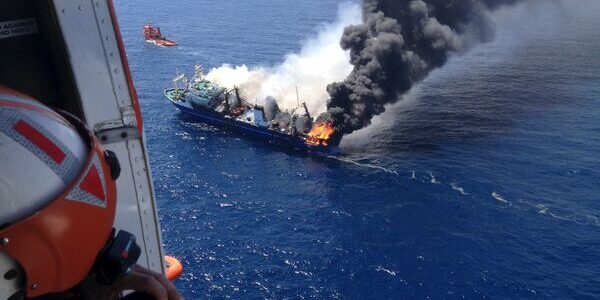
Ukraine has announced an international tender for the purchase of a modern multifunctional vessel for Danube ports, which will perform environmental, emergency rescue, and technical tasks.
According to a statement by the State Enterprise “Ukrainian Sea Ports Authority” (USPA), the vessel will be designed to operate in the ports of Izmail, Reni, and Ust-Dunaysk, which are currently key logistics hubs in the south of the country.
According to the technical specifications, the new vessel will be able to collect oil products and debris from the water surface, extinguish fires on ships and port facilities, and perform tugboat and mooring functions, assisting large ships in maneuvering.
The project is being implemented as part of the RELINC (Restoration of Essential Logistics Infrastructure and Network Connectivity) program with the support of the International Bank for Reconstruction and Development (IBRD).
Experts note that the new vessel will not only strengthen the port infrastructure, but will also be an important element of the environmental safety of the entire Danube.
Danube ports currently handle more than 40% of all Ukrainian agricultural exports and play a key role in international logistics, especially after the blockade of Black Sea routes.
The Danube is approximately 2,850 km long, the second longest river in Europe after the Volga.
The river basin flows through 10 countries — Germany, Austria, Slovakia, Hungary, Croatia, Serbia, Romania, Bulgaria, Moldova, and Ukraine — and flows into the Black Sea through the Danube Delta, part of which is located in the Odesa region.
According to estimates by the European Commission and the International Commission for the Protection of the Danube River (ICPDR), the level of pollution in the river remains moderate, but there is an accumulation of heavy metals, pesticides, and microplastics, especially in the tributaries.
The main sources of pollution are industrial discharges, agrochemicals, household waste, and shipping.